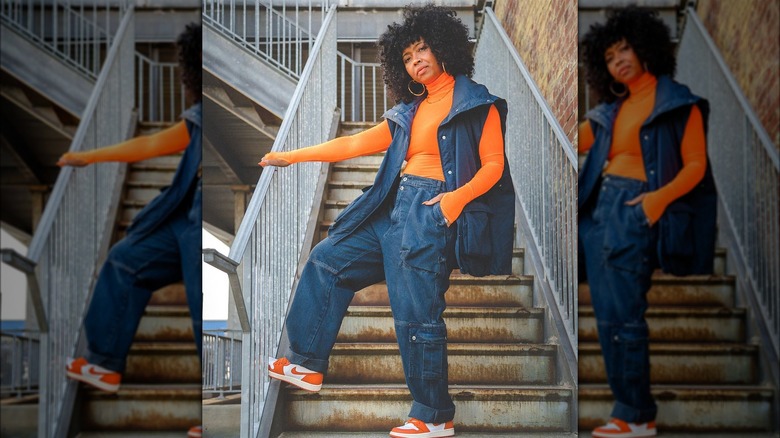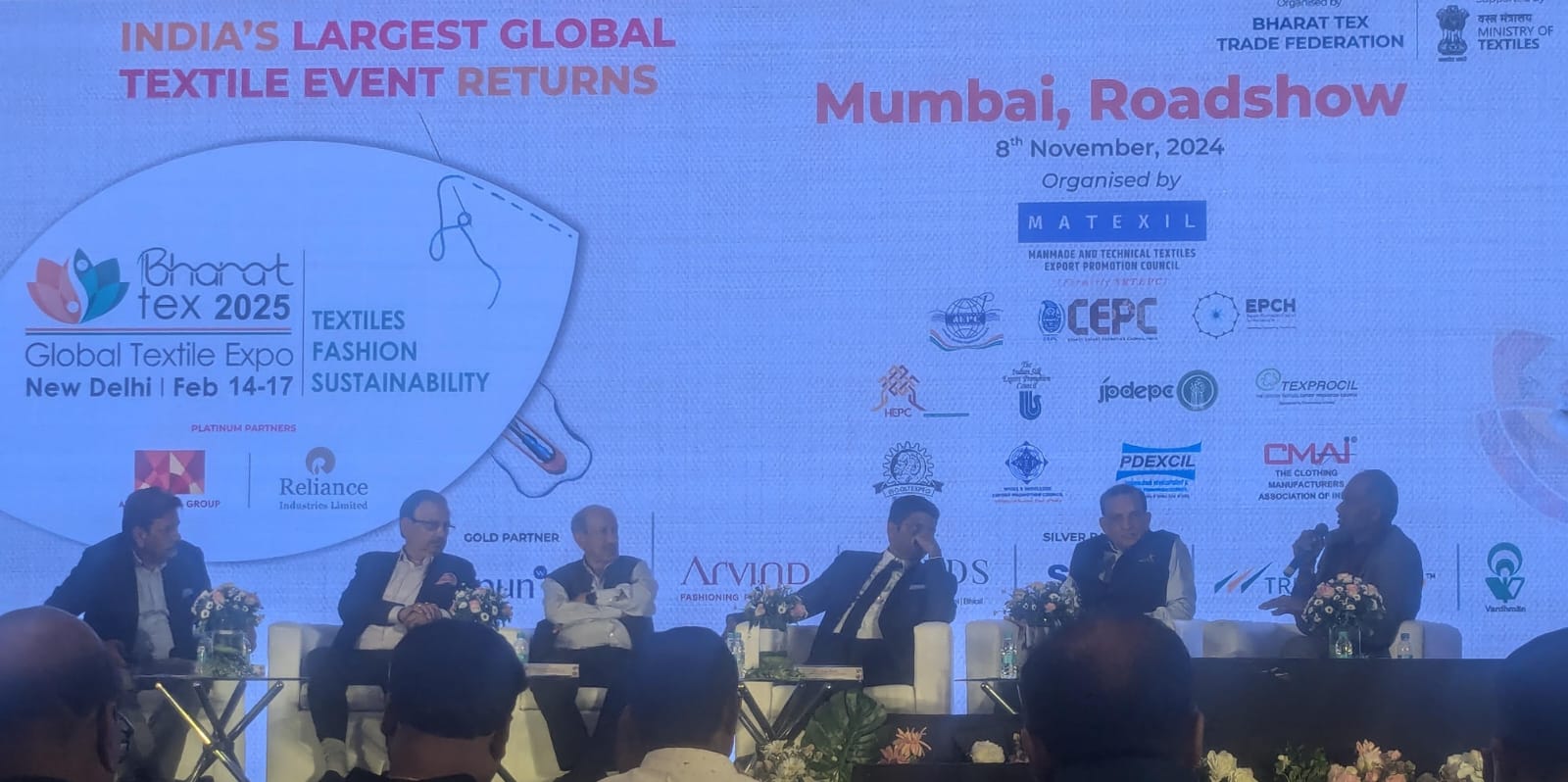FW
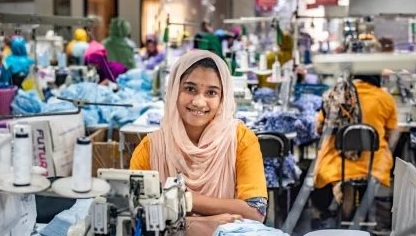
Amidst recent political unrest and labor concerns, nine global organizations representing over 3,000 fashion brands and retailers have made a united appeal to international buyers: Keep sourcing from Bangladesh. In a joint statement, these organizations, whose members include industry giants like H&M, Inditex, and C&A, have called for buyers to avoid cancelling orders or penalizing delayed shipments from Bangladesh. The appeal emphasizes the need for stable partnerships, ethical sourcing practices, and labor rights safeguards as the nation navigates a period of significant transition.
Business at stake
The Bangladeshi garment industry, a strong pillar of the economy, has already experienced significant losses amidst the recent protests and political upheaval. Factory closures in the lead-up to the government-mandated holiday on August 7 resulted in an estimated loss of $150 million per day. The organizations' statement highlights the importance of ongoing orders to prevent further economic damage and protect the livelihoods of millions of workers.
As per some estimate, Bangladeshi garment industry has suffered losses over $1 billion due to recent events. While some factories have resumed operations, uncertainties persist regarding the overall impact on the sector. The statement's emphasis on avoiding order cancellations and penalties reflects the urgent need to stabilize the industry and protect workers' incomes.
Call for ethical sourcing
The joint statement goes beyond simply urging continued sourcing. It stresses the importance of responsible purchasing practices, transparency, and collaboration with suppliers. It also calls for a focus on labor rights and safety to mitigate the adverse effects of the recent protests. This underscores the growing emphasis on ethical sourcing within the global fashion industry and the need for brands to uphold their commitments even in challenging circumstances.
The situation in Bangladesh remains fluid, but the collective voice of global organizations offers a glimmer of hope for the nation's garment industry. The appeal for continued sourcing, paired with the emphasis on ethical practices and labor rights, highlights a potential path forward. It's a call for solidarity, resilience, and responsible business practices that benefit both brands and workers alike.
The ITMF Awards 2024 honoredinnovative achievements in two categories: Sustainability & Innovation and International Collaboration. Winners will present their projects at the upcoming ITMF & IAF Conference 2024 in Samarkand, Uzbekistan, from September 8-10.
The ITMF Sustainability & Innovation Award recognized significant advancements in sustainable textile practices. The 2024 winners include GuoWang High-Technique Fiber Company (China) for low-carbon innovations in the PET fiber industry, HeiQAeoniQ Holding AG (Switzerland) for hyperscalingHeiQAeoniQ, and Samsara Eco (Australia) for infinite plastic recycling solutions for end-of-life textiles.
The ITMF International Collaboration Award highlighted efforts in global cooperation aligned with the 17 Sustainable Development Goals. Winners include DITF (Germany) and RBX Creations (France) for developing next-generation cellulosic filaments from hemp, and HKRITA (Hong Kong, China) for their innovative contributions.
These awards underscore the textile industry's commitment to sustainability and international collaboration, driving progress towards a more sustainable future.
Sympatex Technologies, a global leader in sustainable functional textiles, will showcase its latest advancements at the Lineapelle fair in Milan from September 17-19, 2024. Known for its commitment to sustainability, Sympatex will introduce two innovative products aimed at revolutionizing footwear performance and eco-friendliness.
The first, moisture-tech by Sympatex, offers rapid sweat absorption and quick drying, reducing heat inside shoes by 45 per cent. This innovation not only minimizes blister formation but also eases heat stress, enhancing comfort for the wearer.
The second, non-woven technology, eliminates the use of polyurethane foam in laminates, replacing it with 100 per cent recycled polyester. This switch has led to a 10 per cent reduction in carbon dioxide emissions and a 15 per cent decrease in water consumption, without compromising performance or durability. The life cycle analysis (LCA) confirms that this innovation significantly reduces environmental impact.
Kim Scholze, CSO of Sympatex, expresses enthusiasm about presenting moisture-tech and non-woven technology at lineapelle. These innovations are seen as a decisive step toward creating fully recyclable, mono-material laminates that prioritize environmental sustainability while providing superior comfort and durability.
Yasemin Malcolm, Product Manager Footwear at Sympatex, notes that the new non-woven laminates are more resource-efficient, advancing the company's goal of creating fully recyclable, mono-material laminates while also enhancing technical performance.
Sympatex's participation at Lineapelle 2024 underscores its dedication to sustainable innovation in the footwear industry.
Net sales of US-based fashion retailer, The Buckle, Inc declined by 5.3 per cent to $544.9 million during H1, FY24 as against $575.3 million during the corresponding period last year that ended on July 29, 2023.
The company’s comparable store net sales declined by 7.7 per cent for the 26-week period, compared to the equivalent period ending Aug 5, 2023. Its online sales plummeted by 14.2 per cent to $81.4 million from $94.9 million in the corresponding period of the previous year.
The company’s net income for H1 FY24 declined to $74.1 million compared to $88.6 million in the corresponding period last year.
In Q2, FY24, The Buckle, Inc registered a 3.4 per cent decline in net sales, totaling $282.4 million as against $292.4 million recorded during the same quarter in the previous fiscal year. The company’s comparable store net sales declined by 6.6 percent, while online sales lowered by 15.2 per cent to $37.0 million, compared to $43.6 million in the corresponding period of the previous year.
The company also registered a decline in net income to $39.3 million during Q2 FY24 as against $45.6 million as against Q2, FY23.
Aberchrombie & Fitch has appointed Andrew Clarke, Global President, Mars Snacking, as the company’s new board member.
Having started his career at Marks & Spencer, Clarke has over 30 years of experience in consumer-focused industries, with the last 24 years at Mars in roles of increasing responsibility. He started his career at Mars as head-UK sales before moving onto to various general management and regional roles across Europe and Latin America.
He later assumed a global role as chief customer and marketing officer before moving into his current position
In addition, he spent more than nine years in the Mars leadership team.
A US-based youth apparel retailer, Abercrombie & Fitch Co operates a family of brands, including Abercrombie & Fitch and Hollister.
According to the company’s most recent trading update in May, it recorded a sixth consecutive rise in revenue to $1 billion, with profit improving on fewer promotions and clearance deals.
Same-store sales at the Abercrombie’s bespoke brand increased by 29 per cent during the quarter while the comparable store sales of Hollister expanded by 13 per cent.
Worth approximately $1.552 billion in 2023, the global wool worsted yarn market is projected to grow at a CAGR of 5.3 per cent from 2024-30 to reach $2.19 billion by 2030.
A market research report titled, ‘Global Wool Worsted Yarn Market Report 2023- 2029’ by QY Research, shows, the market is on a growth trajectory, with demand driven by its application in high-quality and durable textiles.
Some of the key players in the global wool worsted yarn market include Suedwolle Group, Zhejiang Xinao Textiles, Indorama Ventures, ZegnaBaruffa Lane Borgosesia, Yünsa, Jiangsu Lugang Culture, Zhejiang Zhengsong Textiles, Novita, E.Miroglio, and BoynerSanayi. In 2022, these top five companies accounted for approximately 81 per cent of the market's revenue.
Growth of the global wool worsted yarn Market is currently being driven by the consumers' growing preference for high-quality, durable textiles. Known for its luxurious feel, warmth, and longevity, wool worsted yarn appeals to consumers seeking premium products.
The versatility of wool worsted yarn makes it a staple in the fashion and textile industry. Designers and manufacturers continue to incorporate it into various collections, supporting its ongoing demand.
The relatively high production costs of wool worsted yarn pose a challenge in price-sensitive markets. Consumers in these regions may opt for cheaper alternative fibers, impacting the adoption rate of wool worsted yarn.
Blended yarns that combine wool worsted yarn with other fibers present a significant opportunity for the market. These blends can enhance yarn properties, offer unique textures, improve affordability, and cater to a broader market.
The rise of e-commerce platforms offers a chance to expand the global reach of wool worsted yarn. Online retail channels provide easier access for manufacturers and retailers, allowing them to tap into markets with limited traditional distribution.
As consumer demand for sustainable products grows, emphasising the eco-friendly, biodegradable nature of wool worsted yarn will continue to attract environmentally conscious buyers.
Despite the recent curfew and violent outbursts across the country, the impact of the civil unrest on Bangladesh’s apparel industry appears to be minimal, says MostafizUddin, CEO, Denim Expert and Organiser, Bangladesh Denim Expo. According to Uddin, following a month-long protest, all apparel factories in the countryreopened as of Aug 06, 2024.
With the nationwide curfew lifted in the first week of August, and most of the nation’s activities resuming normal operations, all apparel factories across the country, including those in Export Processing Zones are operating at full capacity, Uddin states.
With a population of approximately 170 million, Bangladesh is heavily dependent on its garment industry, which provides employment for about eight to ten million people, especially women. In recent years, the industry has become highly dynamic and agile, serving as a key unifier for the country by bringing vital export earnings, prosperity, and empowerment to millions of its citizens.
The industry has also improved its purchasing practices over the past decade. Additionally, it has addressed issues like best practices and corporate responsibility within supply chains. This has resulted in an improved collaboration between suppliers and brands, he adds.
One of the world's major garment manufacturing hubs, Bangladesh has faced significant challenges in recent weeks. In mid-July 2024, widespread unrest and violence erupted, resulting in the deaths of 300 people protesting against Prime Minister Sheikh Hasina, who has led the country for the past 15 years. Despite these difficult circumstances, the apparel manufacturing industry in Bangladesh continues to remain fully operational, Uddin adds.
The Lenzing Group, a leader in regenerated cellulose fibers, has introduced a refreshed branding for its flagship textile brand, Tencel, under the theme "Nature. Future. Us." This new identity emphasizes innovation, collaboration, and sustainability, aiming to drive change in the textile industry for a better future.
Eva McGeorge, Senior Director of Global Marketing and Branding at Lenzing AG, highlighted Tencel's commitment to eco-conscious and resource-efficient fiber solutions since the introduction of TencelLyocell in 1992. The brand's evolution is rooted in its respect for the planet, with a focus on circular business practices and sustainable innovation.
Tencelfibers, sourced from sustainably managed forests, are biodegradable and produced through resource-efficient methods. Lenzing has been exploring the use of waste materials, such as orange peels and cotton waste, to enhance circularity in its fiber production. The brand has also pioneered advancements like waterless dyeing and plastic-free alternatives for stretch fabrics.
Transparency remains a key focus, with Tencel offering detailed fiber claims and traceability through Lenzing’s fiber identification technology. This allows consumers to make informed, sustainable choices.
The new Tencel branding will be showcased at the Intertextile Shanghai Apparel Fabrics Trade Fair from August 27-29, 2024.
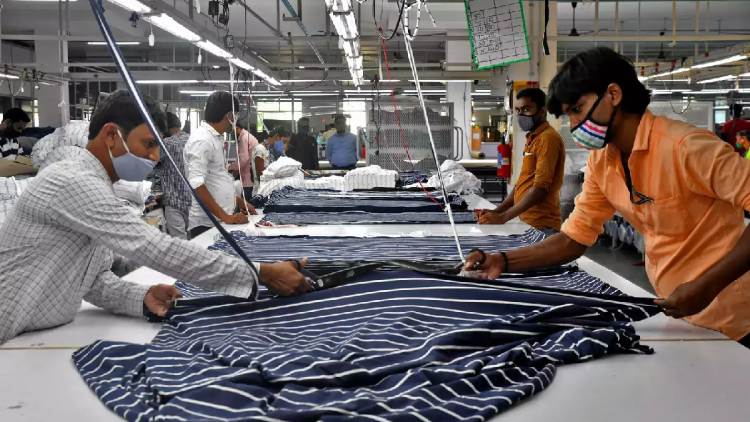
Indias textile sector, a cornerstone of the national economy, has experienced mixed fortunes in terms of its financial performances in the first quarter of the fiscal year 2024-25. As companies navigate a complex global landscape, the recently announced Q1 results reveal both bright spots and areas of concern.
Mixed performance for key players
While some companies have showcased resilience and growth, others have grappled with challenges. The sector witnessed a mixed bag of results, with some companies registering healthy growth in revenue and profits while others faced a decline. Companies such as Trent Ltd showcased impressive revenue growth, driven by strong domestic demand and expansion of retail footprint. On the other hand, companies like Sutlej Textiles & Industries witnessed stable revenues, reflecting subdued global demand and pressure on margins. Similarly, Welspun India, a leading player in home textiles, reported a robust 29 per cent YoY increase in net profit, attributed to strong demand and operational efficiency. "We have been able to navigate the challenging environment by focusing on our core strengths and leveraging our global presence," said B K Goenka, Chairman, Welspun Group. "We remain optimistic about the future and are confident of sustaining our growth momentum." KPR Mill the vertically integrated textile company saw a 15 per cent rise in net profit, driven by higher sales and cost control measures. And the Trident Group’s focus on high-margin products like bed linen and bath linen resulted in a 12 per cent increase in net profit.
At the same time some companies like Raymond saw it net profit decline by 10 per cent due to weak demand in the domestic market and higher input costs. Arvind Limited’s net profit fell by 8 per cent due to sluggish sales in the branded apparel segment. Vardhman Textiles’ saw a 5 per cent drop in net profit due to higher cotton prices and subdued demand. Companies in the fiber segment, particularly those involved in cotton and man-made fibers, faced headwinds due to fluctuating raw material prices and a subdued global demand.
The yarn segment demonstrated resilience, with companies reporting stable or improved performance due to steady domestic demand and a gradual recovery in export markets. The fabric segment had mixed trends, with some companies facing challenges due to increased competition and a shift in consumer preferences towards value-added products.
While there are signs of recovery, domestic demand remains subdued due to inflationary pressures and concerns about the overall economic outlook. Exports on the other hand have been a key driver of growth, supported by strong demand from major markets like the US and Europe. However, global economic uncertainty and geopolitical tensions pose risks. The government's focus on promoting the textile industry through initiatives like the PLI scheme is expected to provide a boost in the long term.
Outlook for the next quarter and FY24-25
The outlook for the next quarter and the full fiscal year 2024-25 is cautiously optimistic. With regards domestic demand, gradual improvement is expected as inflationary pressures ease and consumer confidence improves. Exports are likely to remain strong, although some moderation is possible due to global economic headwinds. Volatility in raw material prices, particularly cotton, is expected to continue, impacting profitability. Meanwhile the government's continued focus on promoting the textile industry through initiatives like the PLI scheme is expected to provide a boost in the medium to long term. Overall, the Indian textile industry is expected to witness moderate growth in FY24-25. Companies that can navigate the challenges and capitalize on the opportunities are likely to outperform the market.
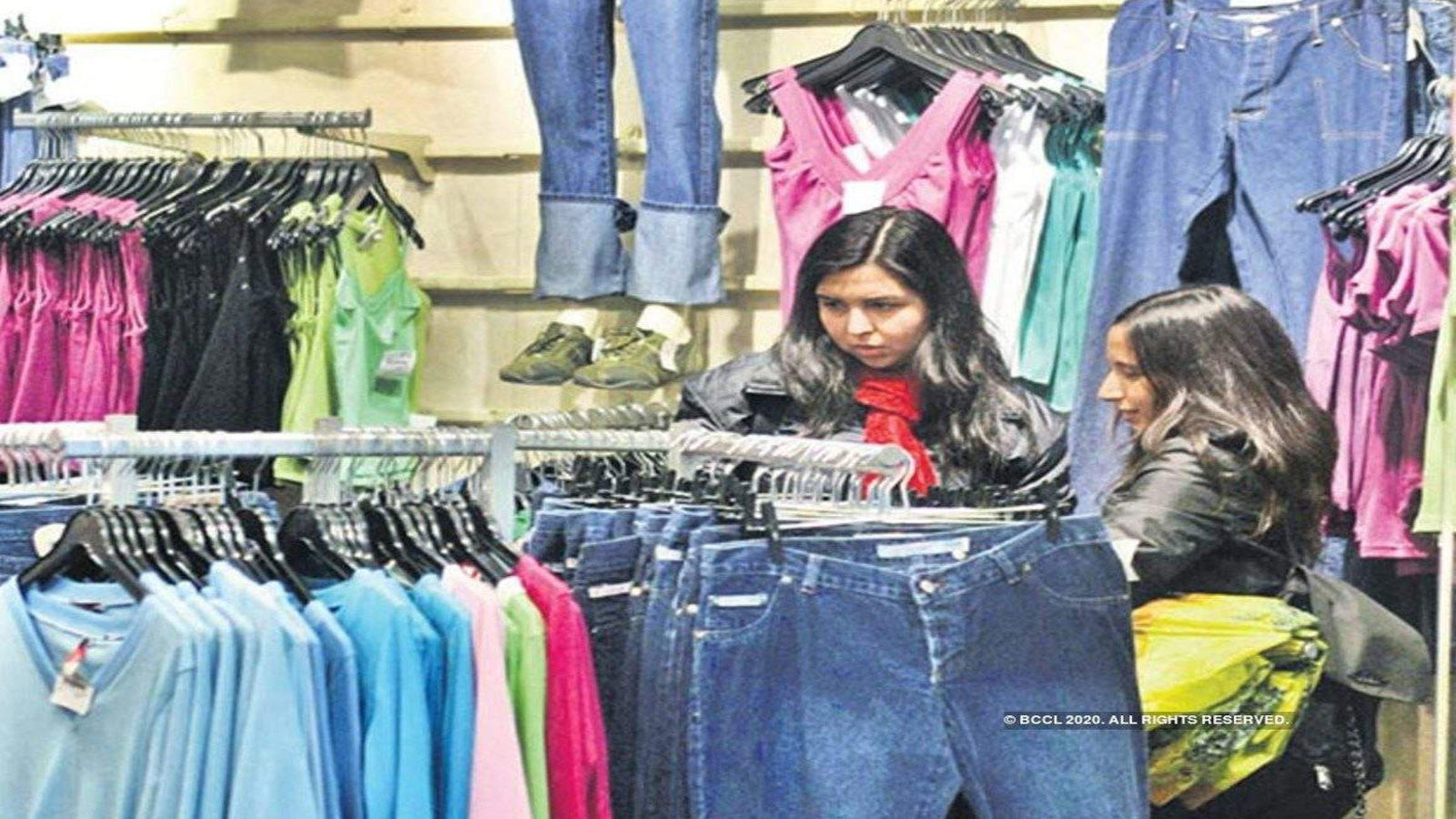
The global apparel retail sector continues to face headwinds, with mixed signals emerging from key markets. Despite a slight easing of inflation, economic uncertainties and declining consumer confidence have cast a shadow over the industry. Wazir Advisors monthly 'Apparel trade scenario in key global markets and India' for August 2024 reveals while some regions and segments have shown signs of resilience, others are grappling with challenges stemming from macroeconomic factors and evolving consumer preferences.
US retail scene In the United States, the retail landscape was characterized by a variance between apparel and home furnishing sales. While home furnishing store sales clocked in a robust 13 per cent increase in July 2024 compared to the previous year, apparel store sales were estimated to be 2 per cent lower. The study reveals shoppers are shifting their spending towards home improvement projects and furnishing.
Online clothing and accessory sales also faced headwinds, falling 1 per cent in the second quarter of 2024 compared to the same period in 2023. This trend reflects a shift in consumer behavior as shoppers increasingly opt for physical stores or explore alternative channels. Moreover are factors such as increased competition, changing consumer preferences, and the easing of pandemic-related restrictions that drove online shopping during the lockdown periods are also at play.
Inventory challenges
A common thread among several major retailers such as Walmart, Target, Kohl’s, VF Corp has been lower inventory levels compared to the previous year. This suggests that retailers are becoming more cautious in their stock management, potentially due to economic uncertainties or concerns about consumer demand.
Also, the US economy experienced mixed indicators in July 2024. While inflation reached its lowest level since April 2021, unemployment rose to its highest point since December 2021. The decline in the consumer confidence index further highlighted the economic challenges faced by consumers.
UK apparel retail
Across the Atlantic, the UK apparel retail market continued to face challenges. Store sales in July 2024 declined by 3 per cent compared to the previous year, reaching £3.6 billion. Online sales of clothing also experienced a decline of 5 per cent in the second quarter compared to the previous year. This downturn reflects the ongoing economic uncertainties and inflationary pressures impacting consumer behavior.
Outlook
The report highlights the apparel retail industry is likely to continue facing headwinds in the coming months. Economic uncertainties, changing consumer preferences, and ongoing supply chain disruptions pose significant challenges. Retailers will need to adapt their strategies to navigate these challenges and capitalize on emerging opportunities. These strategies may include:
• Inventory optimization: Fine-tuning inventory levels to match demand fluctuations.
• Digital transformation: Enhancing online presence and leveraging digital channels.
• Customer-centric approach: Prioritizing customer experience and personalization.
• Sustainability focus: Embracing sustainable practices to meet evolving consumer preferences.









